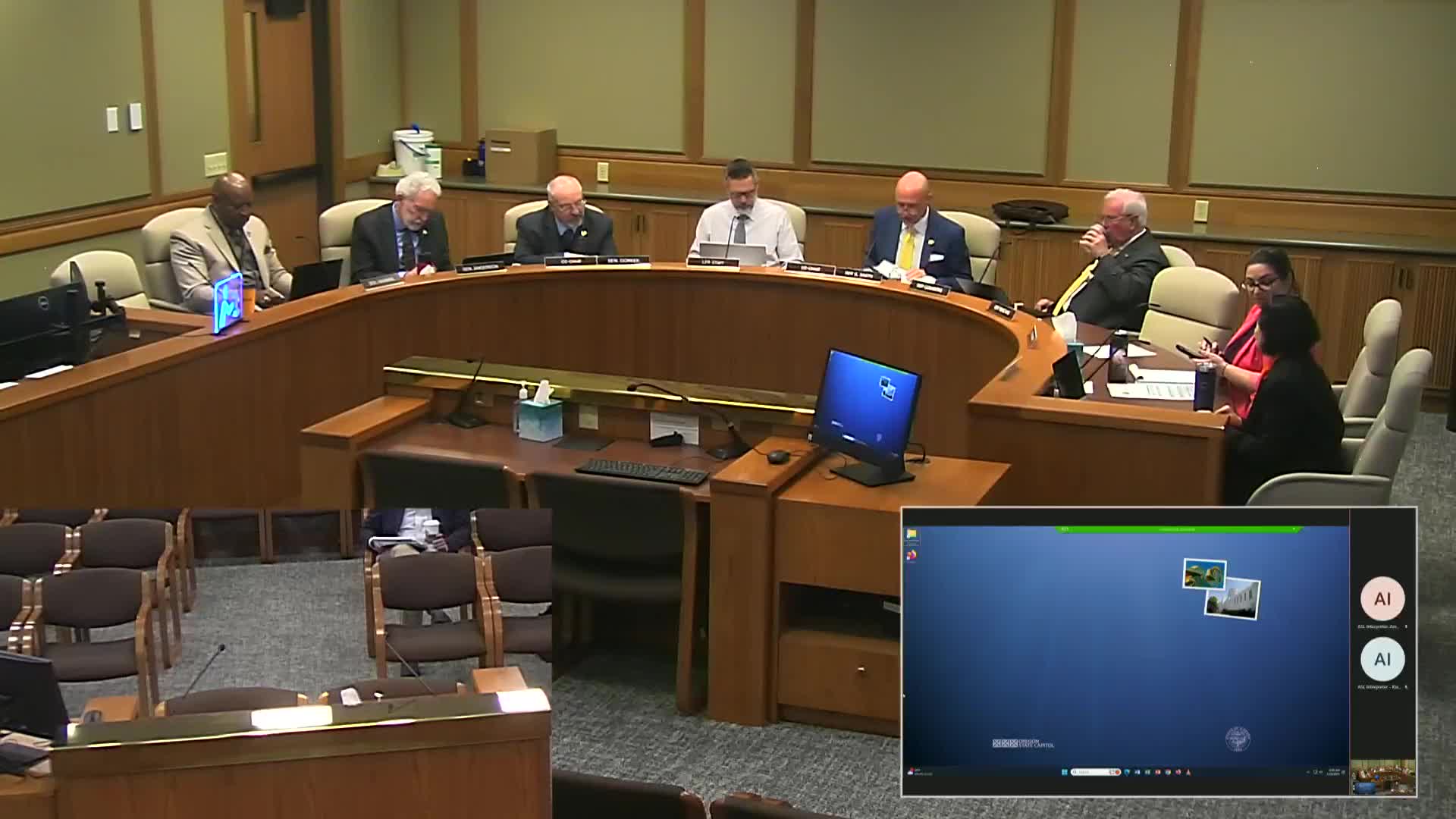Construction Contractors Board Seeks Fee Ratification for SB 5510 to Fund Licensing System Modernization
Get AI-powered insights, summaries, and transcripts
Subscribe
Summary
The Ways and Means Subcommittee on General Government held a public hearing March 18 on SB 5510, which would ratify a Construction Contractors Board fee increase from $325 to $400 for two-year licenses to stabilize revenue and fund an aging licensing system replacement.
The Ways and Means Subcommittee on General Government held a public hearing March 18 on SB 5510, a fee-ratification bill for the Oregon Construction Contractors Board that would authorize a change in the two-year contractor license fee from $325 to $400 and help pay for a replacement of the agency's aging licensing system.
Chris Huntington, administrator of the Oregon Construction Contractors Board, told the committee the proposal is intended to “establish a sustainable revenue source” to maintain current service levels and to protect reserves for a planned information-technology modernization. “I call it existential,” Huntington said of the agency’s current licensing system, which he described as more than 30 years old.
The fee proposal moved by the board in 2024 and now before the Legislature has a tiered implementation: the $400 rate has applied to renewals since July 2024 and is scheduled to take effect for new applicants on July 1, 2025, pending legislative ratification. Huntington said the board intentionally delayed the charge for new businesses by one year to reduce near-term impacts on startups.
Why it matters: The agency is almost entirely funded by contractor license fees, Huntington said, and its revenue is sensitive to construction activity and broader economic conditions. He told the subcommittee approximately 91% of the board’s revenue comes from license fees, 7% from civil penalties (noting that the board retains only 20% of penalties it collects; 80% goes to the general fund) and about 2% from other charges such as public records and complaint filing fees. The governor’s recommended budget for the agency is roughly $23.3 million.
Key details and context: The board employs about 59 permanent staff (with a 0.5 limited-duration program manager included for the licensing system replacement) and oversees about 50,000 license records, Huntington said; that license count includes some people endorsed for both residential and commercial work. Field investigators visit about 8,000 job sites annually to check compliance and to identify individuals or businesses operating outside the law.
Huntington described the board’s primary mandate as consumer protection—licensing, proactive enforcement, dispute-resolution services and education for consumers and contractors—and said the fee increase is intended to avoid cuts to programs and enforcement that would result from continued revenue erosion. He told the committee operational costs have risen by more than 55% since the last fee change in 2010 while staffing levels have declined.
Enforcement and referrals: The board does not investigate wage theft as a primary function, Huntington said, but field investigators may encounter situations suggesting wage theft or withholding violations; in those cases the board typically refers matters to the Oregon Department of Revenue or to the Bureau of Labor and Industries when appropriate. He also said BOLI can refer verified unpaid wage claims to the Construction Contractors Board, which may take action against a license.
Public process and alternatives: Huntington outlined a multi-month public process: study and discussion at board meetings, a formal public comment period from January to March, outreach to roughly 80,000 stakeholders and a public information webinar. The board considered alternatives including deferring implementation, different fee sizes and tiered or size-based fee structures; the board also asked staff to study options for indexing fees or charging larger contractors more, work Huntington said the agency has begun with stakeholders but paused during the legislative process.
Budget and project timing: Huntington said the agency has identified about $1.5 million planned for initial work on the licensing system replacement in 2025 and projected roughly 4.6 months of reserves under current forecasts. The agency secured stage-gate authorization to proceed with requirements and to seek vendor proposals for a commercial off‑the‑shelf system rather than building a new in‑house product.
Committee response and next steps: Committee members asked about wage‑theft referrals, the scope of dispute-resolution work, the timing of system upgrades and whether fees could be indexed for predictability. No committee vote was recorded at the March 18 hearing; the subcommittee closed the public hearing and adjourned. SB 5510 remains subject to further legislative action.
Ending: Huntington said the board will continue stakeholder work on possible fee structures and will return with proposals if the Legislature ratifies the current fee action.
